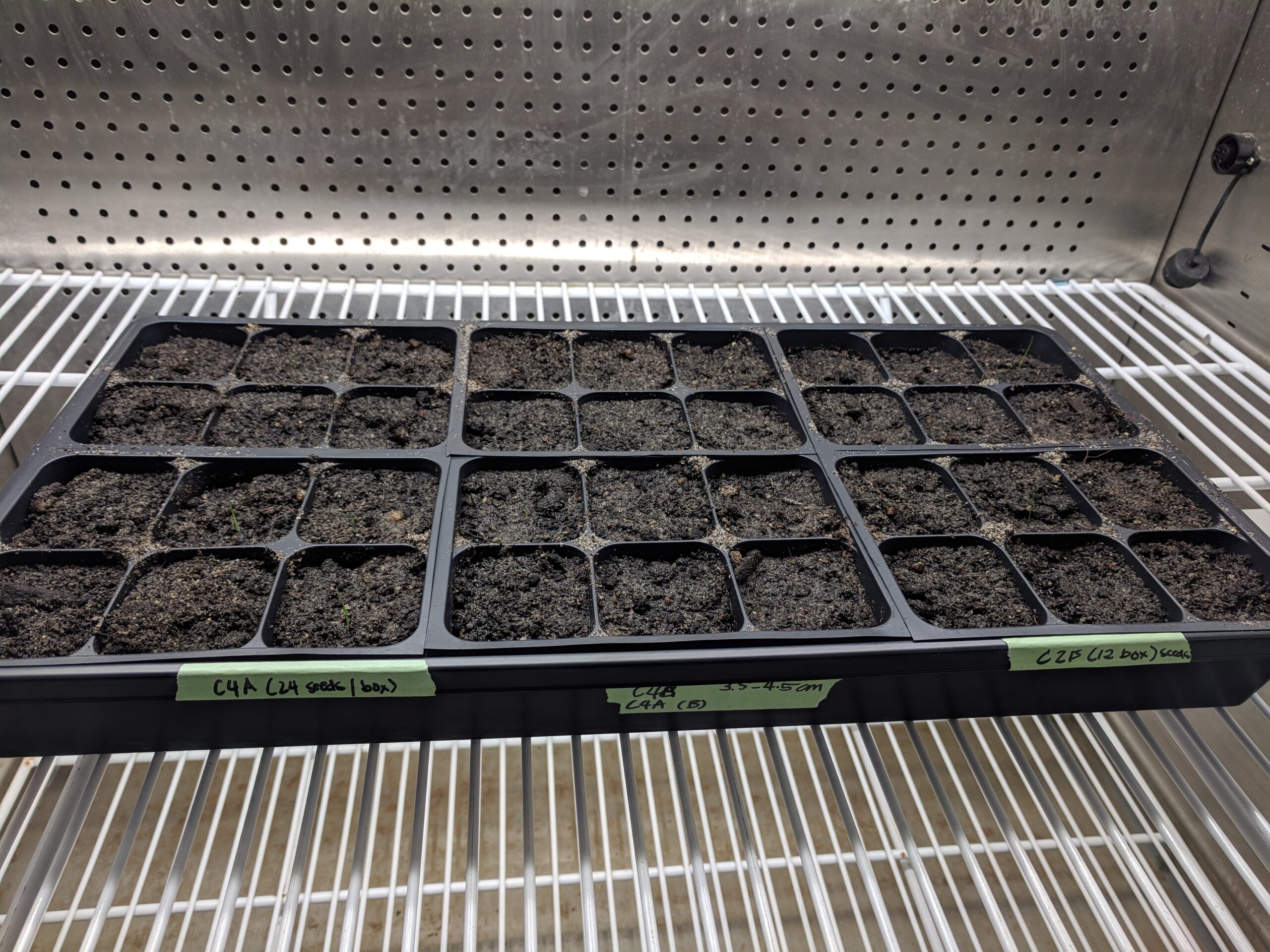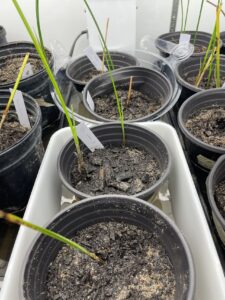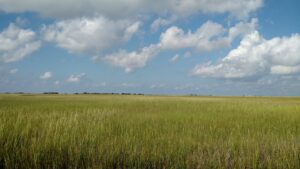Eco-evolutionary dynamics of plant-microbe interactions in coastal marshes
1. Title: Linking plant evolution with soil microbial processes in coastal marshes
Ongoing
Funder: Texas Comprehensive Research Fund
Coastal marshes are among the most productive ecosystems on Earth, providing valuable services that are increasingly threatened by human-induced environmental change. Anthropogenic pressures can negatively impact constitutive biota, like coastal vegetation and soil microorganisms capable of governing ecosystem processes such as biogeochemical cycling that determine the availability of valuable services (e.g., storm protection). We are investigating how soil microbial processes (e.g., functional diversity) are influenced by plant evolution (i.e., genetically based trait variations) under conditions of environmental change. Leveraging 100+ year old seed banks of Schoenoplectus americanus, we are examining if differences in plant traits arising from different genetic identities of an ecologically important salt marsh plant contribute to differences in microbial processes under the interactive effects of elevated nitrogen and salinity.


Germinating 100-year old Schoenoplectus americanus seed collected from marshes
Example findings:
, , , , & (2022). Microbial mediation of salinity stress response varies by plant genotype and provenance over time. Molecular Ecology, 31, 4571–4585.
2. Title: Coevolution between saltmarsh (S. alterniflora) and its fungal partner (DSE)
Ongoing
Funder: National Science Foundation, Allen Family Philanthropies
A changing climate presents major challenges to organisms, including imposing new and potentially more stressful environments for them to survive. Partnerships between two different organisms, such as the mutualistic associations between a plant and soil fungi, can determine how they respond to, and thrive under the new environment. However, the status of these associations can change, for example, from beneficial (both partners exchange benefits) to neutral (no benefits or harm) or harmful (one partner may cause harm to the other), depending on the prevailing conditions. For coastal marshes facing climate change pressure, these associations can be critical, but insights are limited. This project evaluates the extent of mutual partnership between a saltmarsh grass, and fungal partner along a natural stress gradient.
